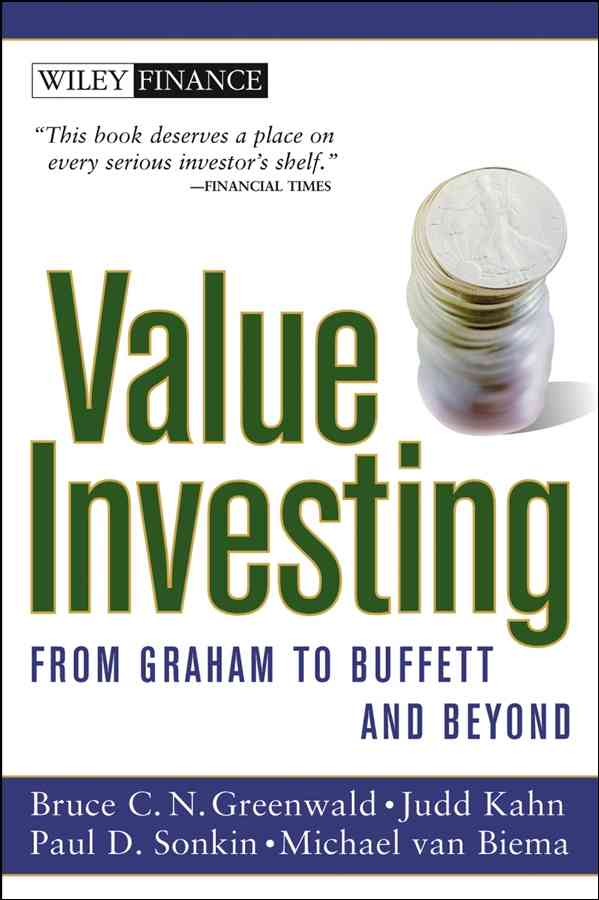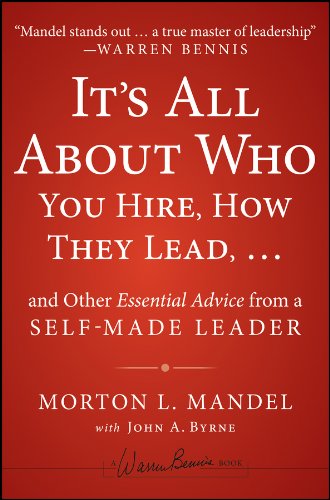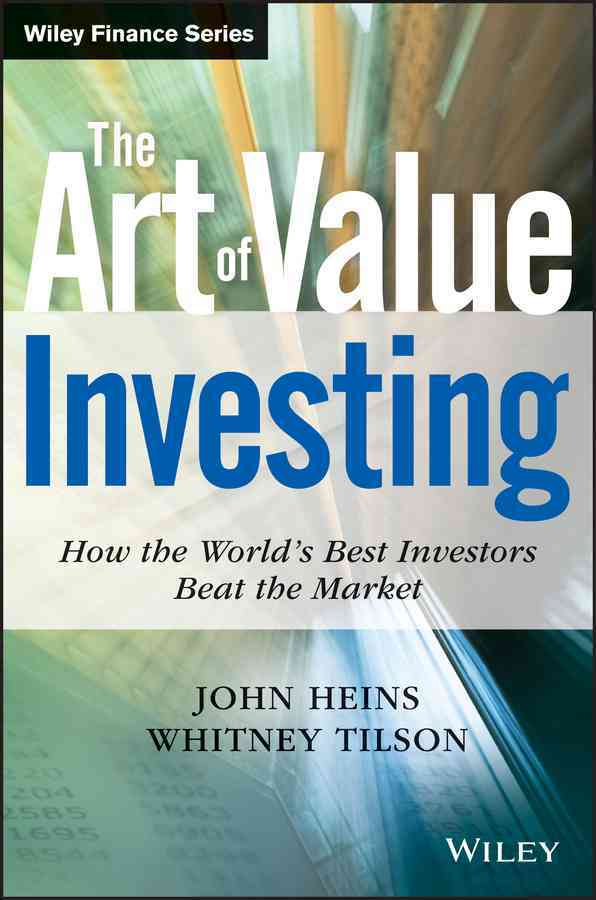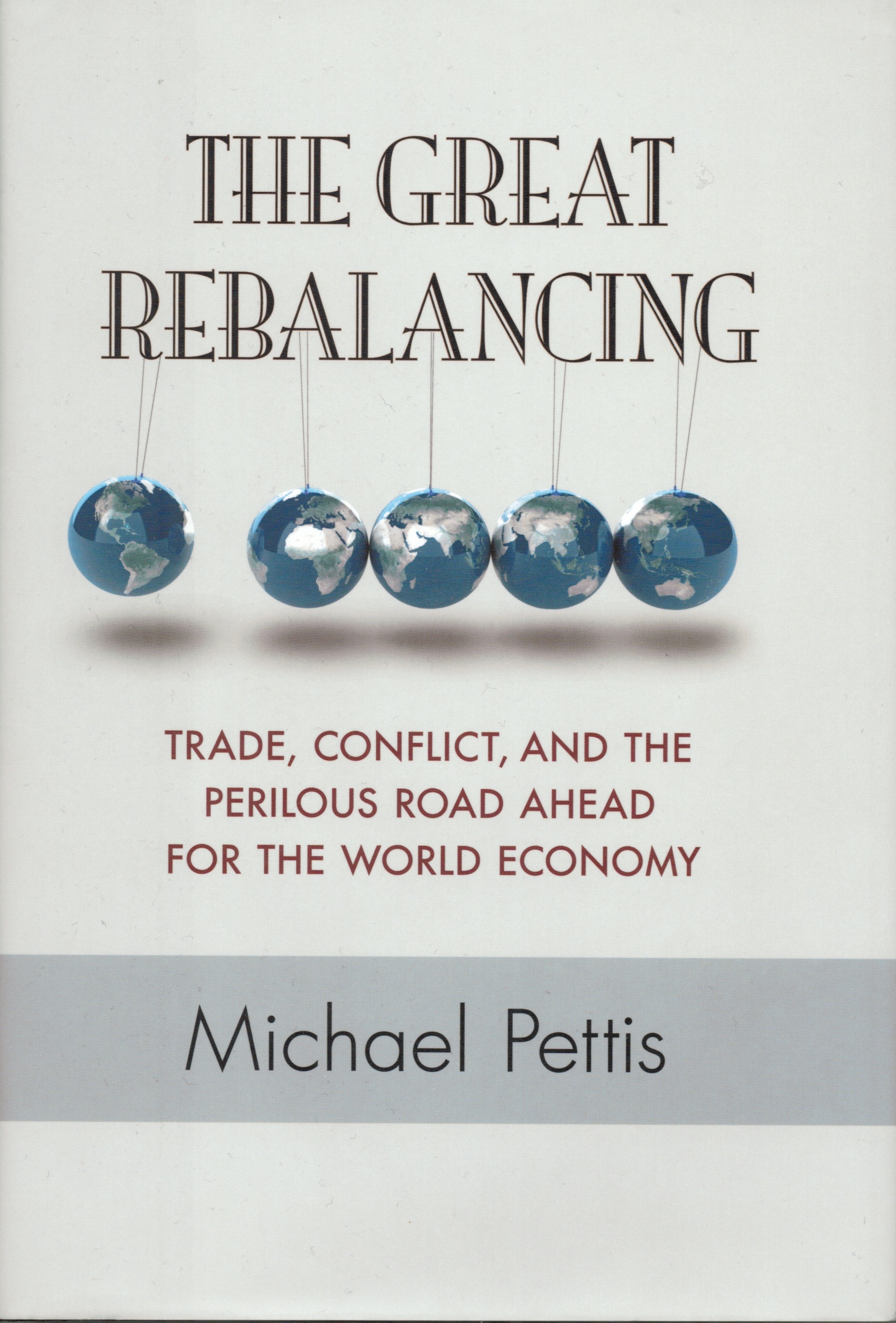Book Review: Value Investing: From Graham to Buffett and Beyond
Several months ago, I was walking in my bedroom, and in a stack of books that we frequently give as gifts, I saw the book Value Investing: From Graham to Buffett and Beyond.? I said to myself, where did this come from?? I looked at it, and realized that hadn’t read it.? I looked at the copyright date, and realized that 2001 is a relatively old book.
So I read the first chapter, decided it was good stuff, and added it to the reading pile.? As some might know, I am a value investor, and recently I wrote an article called ?Value Investing Flavors.?? In it, I took a broad view of value investing, because there are many common principles to value investing employed by all, but many variations on implementation. [Note to those reading at Amazon; they don?t me post links, but if you Google ?Aleph From Graham to Buffett and Beyond? you will find it.]
The book begins with unified principles of value investing: margin of safety, buy ing an asset cheap, etc., but moves on to different ways to implement value investing, depending on the types of companiesthe investor wants to analyze.
There are three ways to do the analysis for value investing:
- Re-estimate the fair value of the assets and liabilities on the balance sheet.? This applies best to companies where converting resources to a better use would be compelling.
- Estimate the normalized earnings power of a slow growing company.
- For a company with a moat, a sustainable competitive advantage, conservatively estimate the path of growing earnings.
I listed the three of them in the order of increasing aggressiveness of analysis, and the amount of work that would need to be done to be assured that there is an opportunity.
After this, the book writes about eight notable value investors, who come from the various camps inside value investing, and puts more flesh on the bones as to the implementation of each method.? I immediately recognized the names of 6 of the 8 value investors.
But what I found most useful were the insights of the investors that would buy small companies.? You can buy ugly situations that are misunderstood, and wait for management to turn the ship around.
This book was a good balance between theory and practice.? I enjoyed this book.? I think most amateurs wanting to learn about value investing would benefit from it.
Quibbles
None.
Who would benefit from this book: Amateur value investors will benefit from this book; if the reader does not want to put the effort into learning value investing, this book will be of no use to him.? If you want to, you can buy it here: Value Investing: From Graham to Buffett and Beyond (Wiley Finance).
Full disclosure: I have no idea where I got this book.
If you enter Amazon through my site, and you buy anything, I get a small commission.? This is my main source of blog revenue.? I prefer this to a ?tip jar? because I want you to get something you want, rather than merely giving me a tip.? Book reviews take time, particularly with the reading, which most book reviewers don?t do in full, and I typically do. (When I don?t, I mention that I scanned the book.? Also, I never use the data that the PR flacks send out.)
Most people buying at Amazon do not enter via a referring website.? Thus Amazon builds an extra 1-3% into the prices to all buyers to compensate for the commissions given to the minority that come through referring sites.? Whether you buy at Amazon directly or enter via my site, your prices don?t change.









